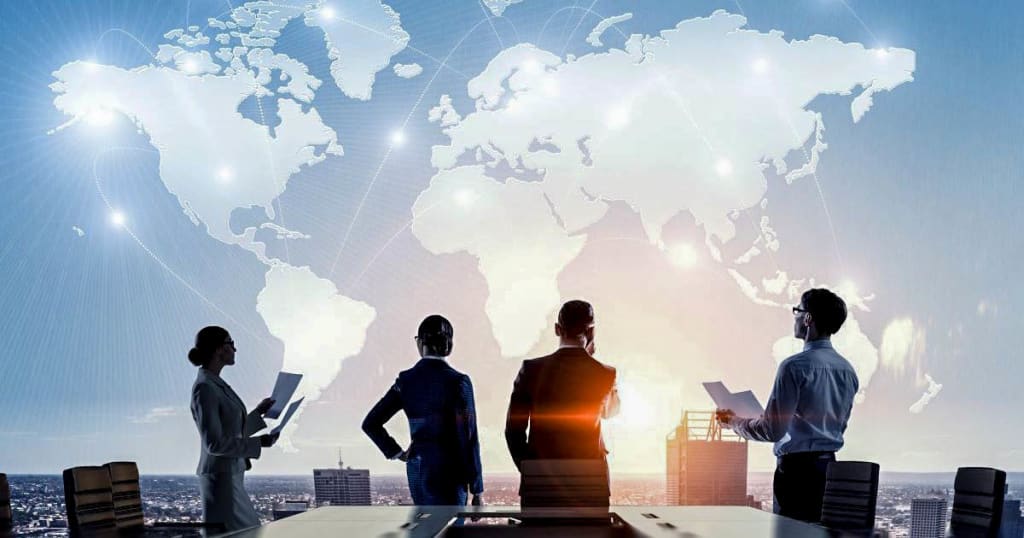Exploring Globalization and Cultural Change:
Navigating the Winds of Change

Globalization has transformed the world in profound ways, reshaping economies, societies, and cultures across the globe. In this exploration, we delve into the intricacies of globalization and cultural change, uncovering their significance, complexity, and enduring impact on the human experience.
Understanding Globalization: Breaking Down Barriers
Globalization is a multifaceted process characterized by increased interconnectedness, interdependence, and integration among economies, societies, and cultures worldwide. Enabled by advancements in technology, transportation, and communication, globalization has facilitated the flow of goods, services, ideas, and people across national borders, creating new opportunities and challenges for individuals and communities alike.
The Impact of Globalization on Cultural Change
Globalization has had profound effects on culture, leading to the emergence of hybrid identities, cultural exchange, and the spread of cultural products and practices across borders. As people interact and engage with diverse cultures and perspectives, cultural boundaries become blurred, giving rise to new forms of cultural expression, creativity, and innovation. Moreover, globalization has led to the homogenization of certain cultural aspects, as Western cultural norms and values are disseminated globally through mass media, technology, and consumerism.
Examples of Cultural Change in the Globalized World
Cultural change manifests in various ways in the globalized world:
Cultural Hybridity: Globalization has given rise to cultural hybridity, as individuals and communities incorporate elements from diverse cultural traditions into their own identities and practices. For example, fusion cuisine, multicultural festivals, and hybrid musical genres reflect the blending of cultural influences and traditions from around the world.
Cultural Exchange: Globalization has facilitated cultural exchange and cross-cultural dialogue, leading to greater understanding, appreciation, and acceptance of diverse cultures and perspectives. Cultural exchange programs, international travel, and digital platforms enable individuals to connect with people from different backgrounds and engage in meaningful cultural exchanges.
Cultural Resistance: Despite the spread of Western cultural influences, many communities and individuals resist cultural homogenization and assert their cultural identity and heritage. Movements for cultural preservation, indigenous rights, and linguistic revitalization challenge dominant cultural narratives and advocate for the recognition and protection of diverse cultural traditions and practices.
The Challenges of Cultural Globalization
While globalization has brought about many benefits, it also poses challenges for cultural diversity, sustainability, and social cohesion. The dominance of Western cultural values and norms in the globalized world can lead to the marginalization and erasure of indigenous cultures, languages, and traditions. Moreover, cultural globalization can exacerbate inequalities and power imbalances between dominant and marginalized cultures, perpetuating systems of cultural imperialism and oppression.
Navigating the Complexities of Cultural Globalization
Navigating the complexities of cultural globalization requires a nuanced understanding of the dynamics of cultural change, power, and representation. It's essential to recognize the agency and resilience of communities in shaping their cultural identities and practices in response to globalization. Moreover, promoting cultural diversity, intercultural dialogue, and equitable representation in the globalized world can help foster greater understanding, empathy, and solidarity among people of diverse cultural backgrounds.
Conclusion: Embracing Cultural Diversity in a Globalized World
In conclusion, globalization and cultural change are transformative forces that have reshaped the world in profound ways. As we navigate the complexities of cultural globalization, it's essential to recognize the importance of preserving and celebrating cultural diversity, fostering cross-cultural understanding, and promoting social justice and equity for all. By embracing the richness and complexity of human cultures and identities, we can build a more inclusive, compassionate, and resilient world where everyone's cultural heritage is valued, respected, and celebrated.
Moreover, in the face of increasing globalization, it's crucial to approach cultural change with sensitivity and empathy, acknowledging the complexities and challenges that arise from the intersection of different cultural traditions and practices. By fostering dialogue, collaboration, and mutual respect, we can create spaces where diverse voices are heard, cultural exchange flourishes, and shared humanity triumphs over division and discord. Together, let us embrace the diversity of our global community and work towards a future where cultural richness is celebrated as a source of strength, creativity, and inspiration for generations to come.
About the Creator
Mohamed Ali
Mohamed Ali is a passionate writer and researcher with a keen interest in exploring the complexities of human behavior and society through the lens of sociology. With a background in sociology and psychology.
Enjoyed the story? Support the Creator.
Subscribe for free to receive all their stories in your feed. You could also pledge your support or give them a one-off tip, letting them know you appreciate their work.






Comments
There are no comments for this story
Be the first to respond and start the conversation.